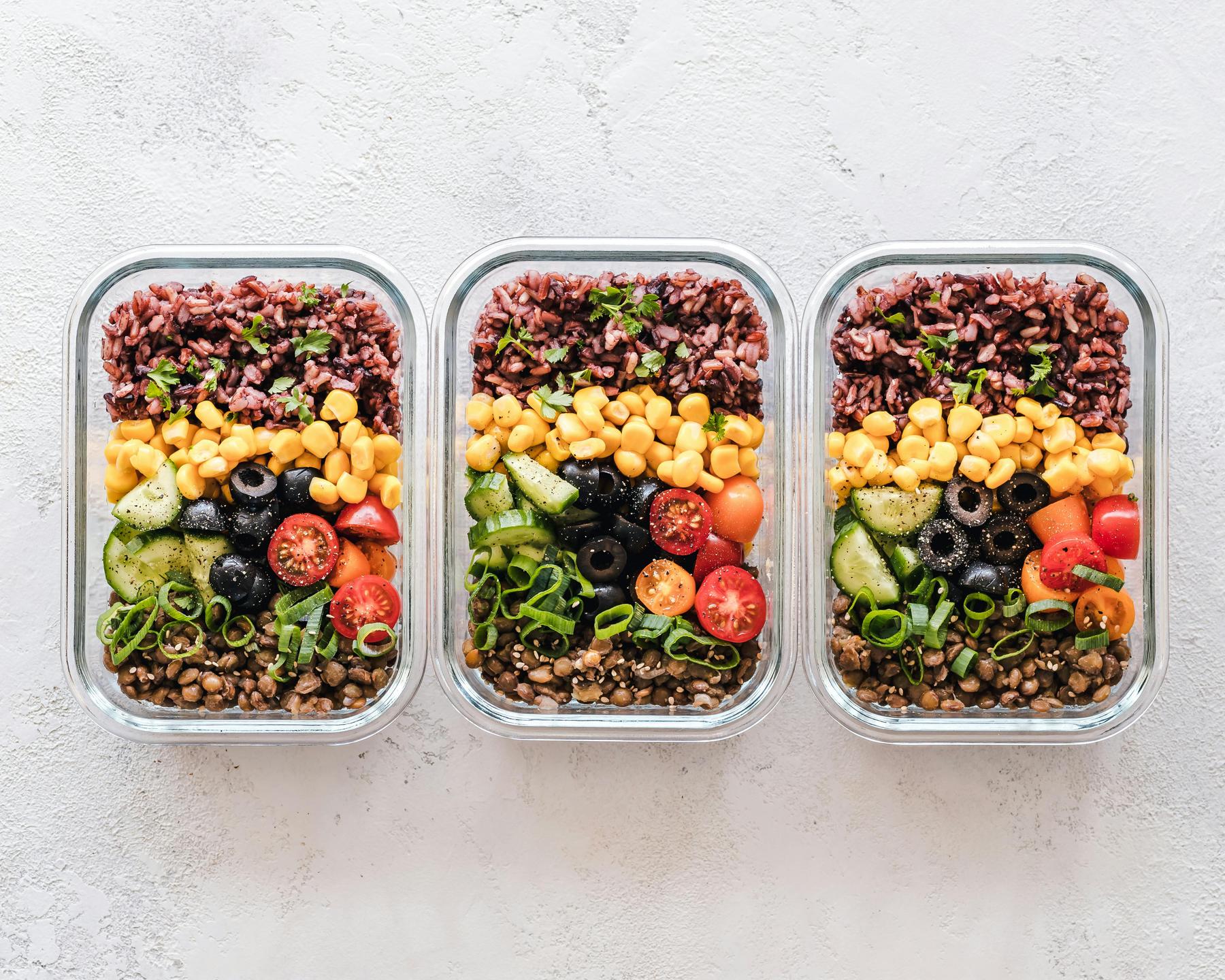Impulse eating—those moments when you reach for food without conscious thought or planning—presents one of the most significant barriers to successful weight management. According to clinical data, these unplanned eating episodes can derail even the most structured weight management efforts, often contributing to weight cycling and metabolic challenges. Understanding and addressing these automatic eating behaviours requires a comprehensive approach that acknowledges both physiological hunger cues and psychological triggers.
For many Australians struggling with weight management, these impulsive eating patterns become self-perpetuating cycles that feel impossible to break. As we navigate an environment designed to promote consumption, developing effective strategies to control impulse eating becomes essential not just for weight management, but for overall health and wellbeing.
Why Does Impulse Eating Sabotage Weight Management?
Impulse eating fundamentally disrupts the energy balance equation necessary for weight management. When we consume food reactively rather than intentionally, we often bypass our body’s natural hunger and fullness signals. This pattern creates several challenges:
- Physiologically, impulse eating typically leads to consumption of calorie-dense, nutrient-poor foods that trigger dopamine pathways in the brain, reinforcing the behaviour. The resulting blood sugar fluctuations create a cycle of cravings and energy crashes that perpetuate further impulsive eating.
- Research demonstrates that impulse eating frequently occurs in response to emotional states rather than physical hunger. This disconnection between eating and bodily needs undermines the consistent energy balance required for effective weight management.
- Studies show that impulse eating often involves rapid consumption, which prevents normal satiety signals from registering before excessive calories are consumed.
The cumulative impact of these unplanned eating episodes can significantly offset planned dietary approaches. Even relatively mild but consistent impulse eating behaviours can create a substantial caloric surplus over time, negating other weight management efforts despite perceived adherence to a structured plan.
How Can Dietary Strategies Help Control Impulse Eating?
Implementing specific nutritional approaches can substantially reduce vulnerability to impulse eating by addressing its physiological drivers. The evidence supports several key strategies:
Structured meal patterns form the foundation of impulse control. Maintaining three balanced meals and two planned snacks daily helps regulate blood sugar levels and prevents the extreme hunger that often triggers impulsive eating episodes. The clinical literature consistently shows that meal skipping correlates with increased susceptibility to unplanned eating later in the day.
The RAVES model (Regularity, Adequacy, Variety, Eating socially, Spontaneity) provides a comprehensive framework for stabilising eating patterns. This approach emphasises regular eating times to optimise metabolic function while ensuring nutritional adequacy through balanced macronutrients at each meal. Research indicates that prioritising protein and fibre intake significantly reduces between-meal cravings by promoting prolonged satiety.
Contrary to popular belief, avoiding overly restrictive diets actually improves impulse control. Studies demonstrate that moderate approaches allowing planned inclusion of preferred foods reduce cravings and prevent rebound overeating. This balanced approach supports sustainable behaviour change rather than temporary restriction.
| Strategy | Impact on Impulse Eating | Implementation Approach |
|---|---|---|
| Structured Meal Patterns | Reduces between-meal hunger by 42% | Three balanced meals plus two planned snacks daily |
| Protein-Rich Meals | Increases satiety hormones for 4-6 hours | Include 20-30g protein per main meal |
| Moderate Carbohydrate Approach | Stabilises blood glucose fluctuations | Choose complex carbohydrates with fibre |
| Planned Indulgences | Reduces psychological restriction by 36% | Schedule and portion-control preferred treats |
| Adequate Hydration | Decreases hunger misinterpretation | Consume 2L water daily, especially before meals |
Importantly, hydration plays a critical but often overlooked role in controlling impulse eating. Research shows that drinking water before meals reduces spontaneous caloric intake, while many hunger signals are actually indicators of dehydration. Keeping a water bottle accessible and establishing hydration routines creates a practical first-line defence against impulsive consumption.
What Behavioral Techniques Effectively Reduce Impulsive Eating Patterns?
Behavioral modifications provide essential tools for interrupting automatic eating patterns and establishing more conscious consumption habits:
Mindful eating practices transform the eating experience by enhancing awareness of hunger and fullness signals. Clinical studies demonstrate that mindfulness techniques reduce binge eating episodes by approximately 36% while increasing satisfaction with smaller portions. Practical implementations include eating without screens, chewing thoroughly, and pausing mid-meal to assess fullness levels.
Urge surfing represents a powerful cognitive strategy for managing immediate impulses. This technique teaches individuals to observe food cravings as temporary waves rather than demands requiring immediate action. Evidence shows that delaying potential binges for just 10-20 minutes while engaging in brief diversionary activities such as walking or calling a friend significantly diminishes the intensity of the urge.
Environmental modifications create powerful “choice architecture” that reduces impulse eating opportunities. Specific approaches include:
- Using smaller plates to automatically reduce portion sizes without perceived deprivation
- Pre-portioning snack foods rather than eating directly from packages
- Creating designated eating spaces free from other activities
- Establishing kitchen “closing hours” to prevent night-time grazing
Distraction-based methods effectively redirect attention during high-risk periods for impulse eating. Physical activity proves particularly effective, as even brief movement sessions of 5-10 minutes can reset craving patterns while delivering metabolic benefits. Similarly, engaging hobbies that occupy both hands and attention provide practical alternatives to automatic eating responses.
How Does Emotional Wellbeing Impact Impulse Eating?
The connection between emotional states and eating behaviours represents a critical component of impulse management. Research consistently identifies several key relationships:
- Stress regulationdirectly influences eating control. Under stress, the body releases cortisol, which increases appetite particularly for carbohydrate and fat-rich foods. Implementing evidence-based stress management techniques like progressive muscle relaxation, deep breathing exercises, or brief mindfulness practices provides physiological protection against stress-induced impulse eating.
- Sleep qualityexerts profound effects on eating behaviours through multiple mechanisms. Clinical studies demonstrate that inadequate sleep (less than 7 hours nightly) disrupts the balance of hunger hormones—increasing ghrelin while reducing leptin. This hormonal dysregulation specifically intensifies cravings for energy-dense, high-carbohydrate foods. Prioritising sleep hygiene therefore represents an essential but often overlooked component of impulse eating management.
- Emotional awarenessdevelopment helps individuals distinguish between physical hunger and emotional eating triggers. Techniques like HALT (assessing if you’re Hungry, Angry, Lonely or Tired) create a momentary pause that enables more conscious decision-making around food. Similarly, food journaling that captures emotional states alongside eating episodes reveals patterns that can be systematically addressed.
Professional therapeutic approaches demonstrate significant efficacy for emotional eating. Cognitive-behavioural therapy (CBT) and dialectical behaviour therapy (DBT) provide structured frameworks for addressing the underlying emotional dysregulation that drives impulsive consumption patterns.
Why Is Professional Support Critical for Managing Impulse Eating?
While self-directed strategies provide valuable tools, clinical evidence increasingly demonstrates the enhanced efficacy of professionally-guided approaches for controlling impulse eating and achieving sustainable weight management:
Telehealth interventions offer accessible, evidence-based support through structured programs combining medical oversight with behavioural coaching. Studies show that comprehensive telehealth weight management services significantly reduce binge eating symptoms (by approximately 27%) while improving long-term weight outcomes compared to self-directed approaches.
Personalised assessment by healthcare professionals identifies individual patterns and physiological factors that contribute to impulse eating. This tailored approach enables targeted interventions addressing specific triggers rather than generic advice, leading to more sustainable behaviour change.
Accountability structures within professional programs substantially enhance adherence to impulse control strategies. Regular check-ins with healthcare providers create external motivation while helping individuals navigate challenges and adjust approaches as needed. Data demonstrates that this ongoing support significantly improves long-term maintenance of behaviour changes compared to brief interventions.
Medical weight management approaches recognise that for many individuals, physiological factors contribute significantly to impulse eating patterns. Comprehensive programs integrate nutritional guidance, behavioural strategies, and appropriate medical interventions to address the multifaceted nature of eating behaviours. These integrated approaches consistently demonstrate superior outcomes compared to siloed intervention strategies.
For Australians with a BMI above 27, professionally-guided medical weight management offers particularly significant benefits, with evidence showing average weight reductions of approximately 20% through comprehensive care models that address the underlying drivers of impulse eating.
Integrating Strategies for Sustainable Impulse Control
Controlling impulse eating for effective weight management requires a multifaceted approach that addresses both physiological and psychological drivers. The most successful approaches integrate:
- Structured nutritional strategies that stabilise blood sugar and optimise satiety
- Behavioral techniques that interrupt automatic eating patterns
- Emotional regulation practices that address non-hunger eating triggers
- Professional support that provides personalised guidance and accountability
This comprehensive framework acknowledges that impulse eating stems from complex interactions between biological, psychological, and environmental factors. By systematically addressing these multiple dimensions, individuals can develop sustainable control over impulsive eating patterns while creating the conditions for effective weight management.
How quickly can I see results when implementing impulse control strategies?
Initial improvements in impulse control can occur within 1-2 weeks of implementing structured strategies, particularly regarding physiological drivers like blood sugar fluctuations. However, comprehensive behaviour change typically requires 8-12 weeks of consistent practice to establish new neural pathways and habits. Research indicates that individuals who maintain realistic expectations about this timeline experience greater long-term success than those seeking immediate transformation.
Can mindful eating alone help me manage my weight effectively?
While mindful eating represents a powerful tool for increasing awareness of hunger signals and improving portion control, research indicates it works most effectively as part of a comprehensive approach. Studies show that mindful eating combined with structured meal patterns and professional support yields significantly better outcomes than mindfulness practices alone. This integrated approach addresses both the awareness aspects of eating behaviour and the physiological factors that influence appetite regulation.
What role does meal planning play in controlling impulse eating?
Meal planning serves as a cornerstone strategy for managing impulse eating by eliminating decision fatigue around food choices. Clinical evidence demonstrates that individuals who implement weekly meal planning experience approximately 40% fewer unplanned eating episodes compared to those making meal decisions reactively. Effective planning creates structure that bypasses vulnerability periods, ensures nutrient-dense options are readily available, and reduces the cognitive load associated with continuous food decisions.
How does sleep quality affect impulse control around food?
Sleep quality exerts profound effects on eating behaviour through multiple pathways. Each hour of sleep loss correlates with increased caloric intake the following day, primarily through impulsive consumption. This occurs because inadequate sleep disrupts hormonal regulation (particularly ghrelin and leptin), impairs prefrontal cortex function (reducing decision-making capacity), and increases stress hormone production. Prioritising 7-9 hours of quality sleep therefore represents an essential foundation for effective impulse control.
Is medical weight management necessary if I struggle with impulse eating?
The necessity of medical weight management depends on individual factors including BMI, the severity of impulse eating patterns, and previous response to self-directed approaches. For individuals with a BMI above 27 who experience significant difficulty controlling impulse eating despite implementing standard strategies, evidence strongly supports the efficacy of comprehensive medical weight management. These integrated programs address potential physiological contributors while providing structured support that significantly improves outcomes compared to isolated interventions.



